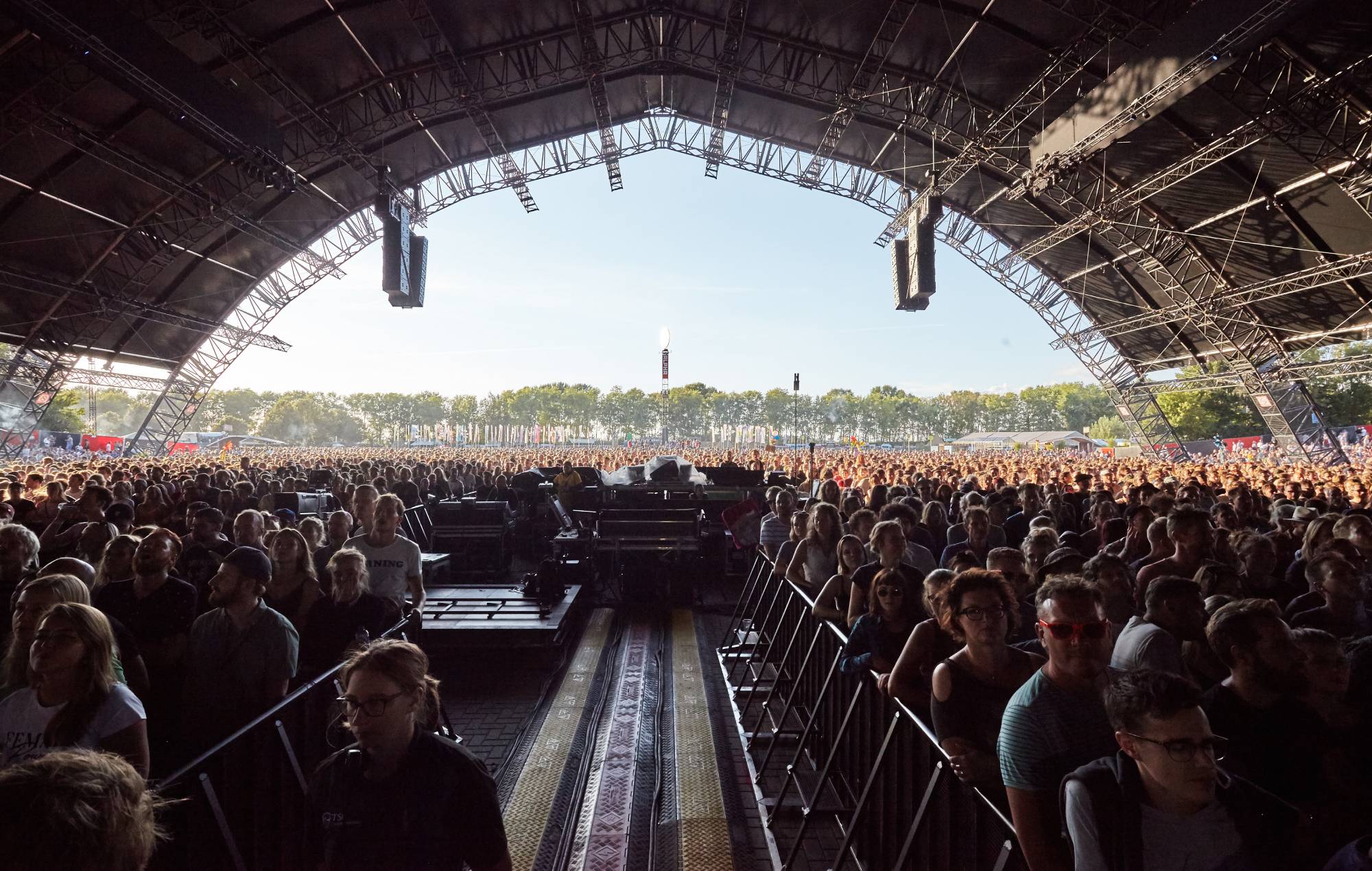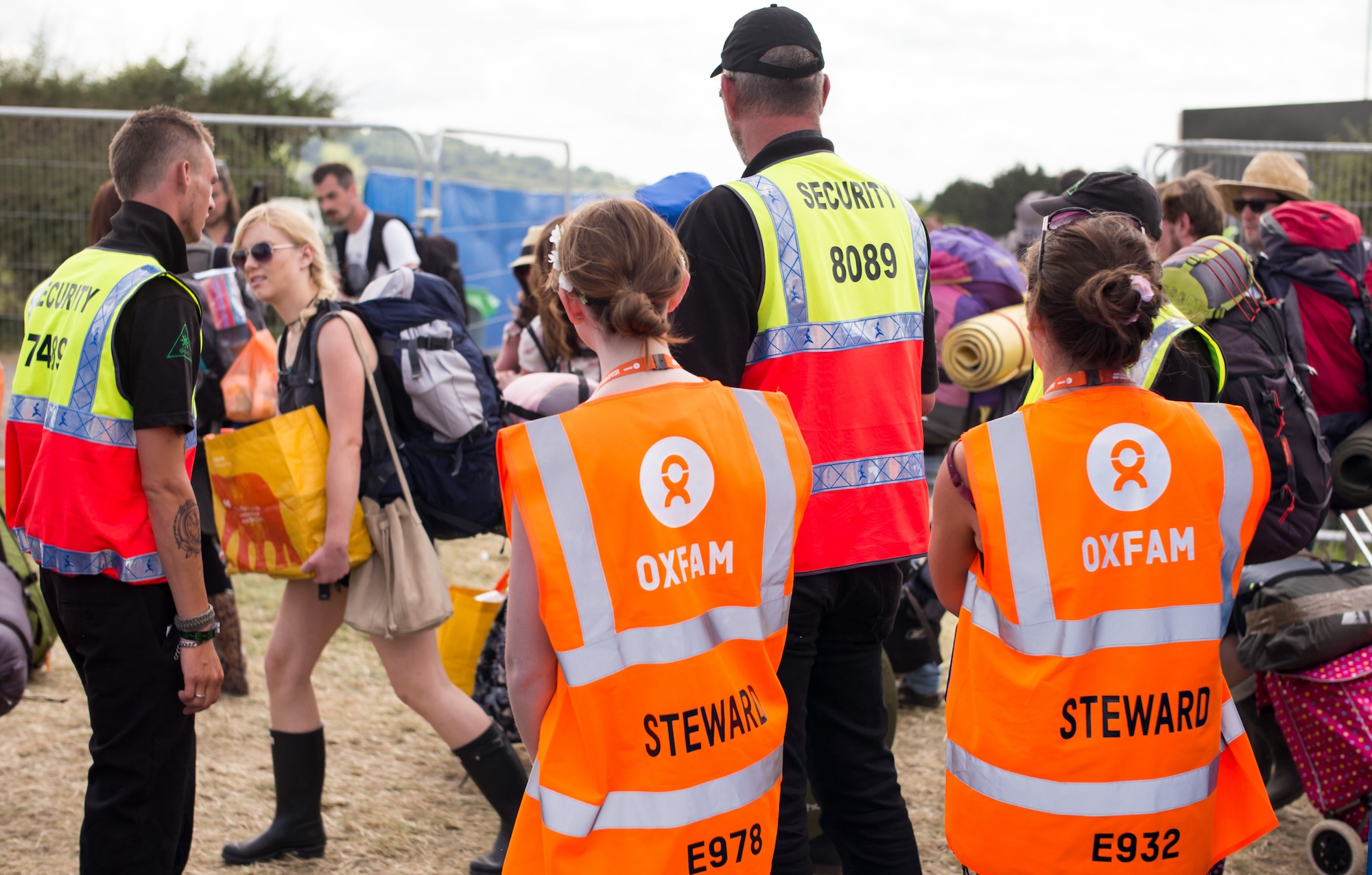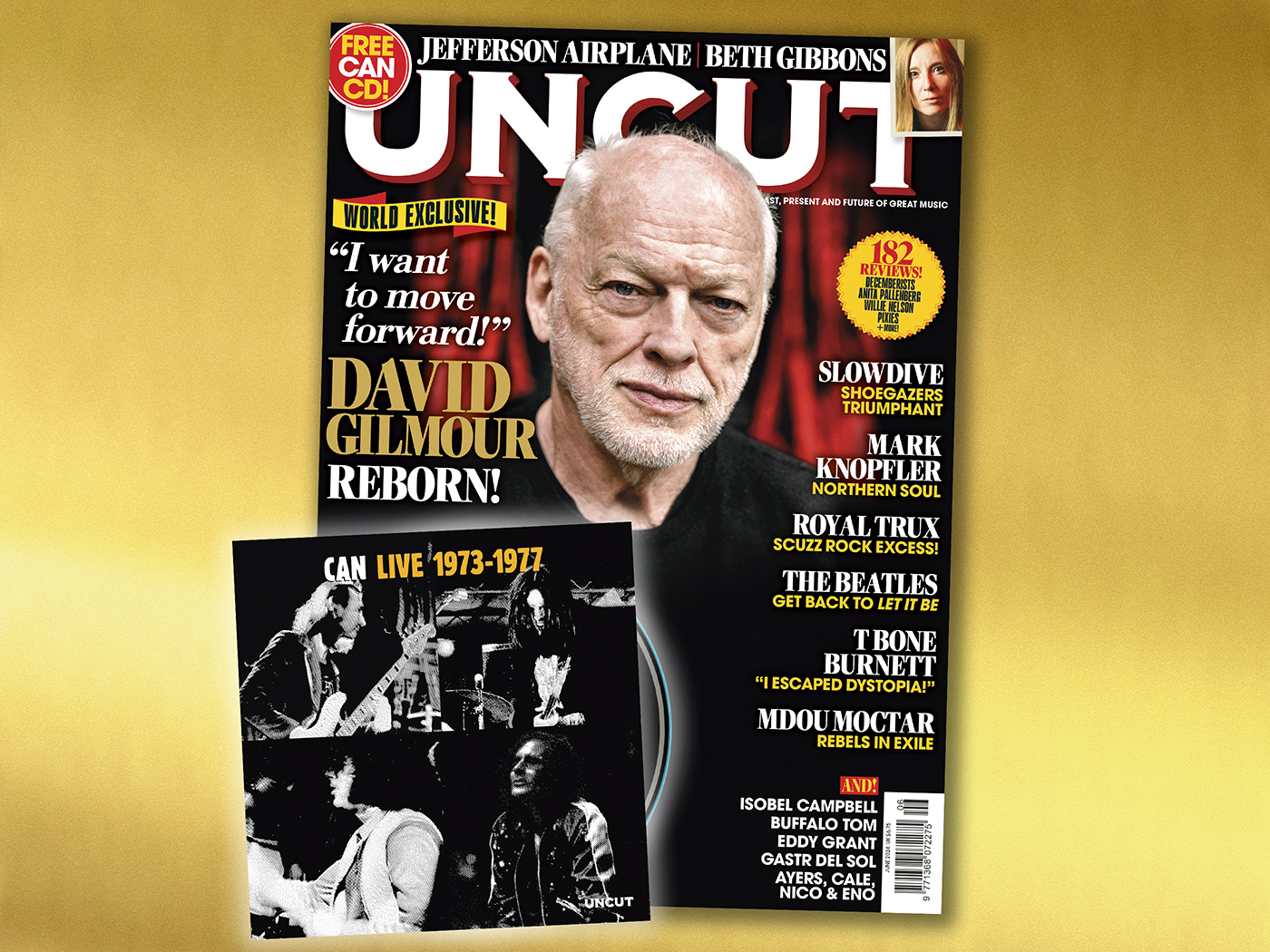
Figures from the UK music industry have spoken to NME about how the first summer of post-pandemic touring has shown that the complications of Brexit are “strangling the next generation of UK talent in the cradle”.
- READ MORE: UK touring bands are suffering due to “Brexit fuck-ups and a lack of government control”
Last year, the UK music industry spoke out together on how they had essentially been handed a “No Deal Brexit” when the government failed to negotiate visa-free travel and Europe-wide work permits for musicians and crew. As a result, artists attempting to hit the road again after COVID found themselves on the predicted “rocky road” for the first summer of European touring after Britain left the EU.
As major touring across the continent returned after a two-year break due to the COVID pandemic, the spring saw artists, managers, and more tell us of how the “nightmare” of new red tape saw artists suffering due to “Brexit fuck-ups and a lack of government control” – with White Lies making headlines as one of the major acts forced to cancel dates in Europe due to their equipment being held up.

Last month, a study by Best For Britain – a group “pushing for closer relationships with Europe and the world” – showed that the number of British artists scheduled to perform in Europe as part of this year’s festival season had fallen by 45 per cent when compared to 2017-2019 (pre-Brexit).
Best For Britain CEO Naomi Smith told NME that the government needed to act now in order to open the pipeline of new UK talent to develop by being allowed to afford to tour in Europe.
“Arguably, music is Britain’s most famous export, so it’s just insanity that the government is refusing to improve the Brexit deal for UK musicians and are strangling that next generation of talent in the cradle,” said Smith. “It’s palpable, from what we’ve heard, just how much this is damaging emerging artists and the smaller and lesser-known bands.
“The bigger artists that basically operate as large corporations can get workarounds with the trade barriers, but the smaller ones are struggling.”
Echoing that new admin and red tape around carnets and visa requirements – combined with the travel delays – was making touring more “difficult” and in some cases “frankly incompatible”, Smith said that UK acts were seeing the impact on bookings, especially last-minute gig opportunities.
“Before you could load up a car or book a flight and be in Europe in time to play,” she said. “Now, they’re telling us that they’re at the bottom of the list for festival organisers across the continent. They might have visa issues, or there’s the risk that their equipment just won’t make it. Look at what happened to White Lies. Their equipment was detained by Brexit legislation.”

Smith said that the government needed to realise that these matters were not about “immigration, taking back control, or trying to curtail who can come and go” but purely about trade and business for one of our most valuable exports.
“These are business transactions and we’re stifling some of our most lucrative industries at a time when we’re facing a cost of living crisis, galloping inflation, soaring energy and food bills,” she said. “One of the levers our government could pull, but is refusing to, is to reduce trade barriers for various sectors, most notably music.”
She added that she was “not optimistic” about these issues being solved in the year ahead, especially after the ongoing Tory leadership contest to find the next Prime Minister.
“The two candidates to replace Boris Johnson as prime minister have far more in common than they want us to believe,” she argued. “They are both wholly committed to a very, very hard form of Brexit. They are pushing through the Northern Ireland protocol bill. That might sound like it won’t impact touring musicians, but it has such a fundamental impact on Britain’s soft power and how we’re seen in the world.
“If we tear up an international treaty that we negotiated and signed just a couple of years ago and walk away from that, then we can’t be trusted. I can’t be optimistic while these guys are in Number 10. That’s why we need a General Election, and we need the opposition parties to work together to get rid of the Conservatives.”

Smith was among the many figures NME spoke to who hoped that the government would adopt the recommendations of the recent report from the All-Party Parliamentary Group on Music, which she said held “reasonable, practical and forward-looking solutions that the government can implement easily”. Jon Collins, CEO of the music body LIVE, agreed.
Collins told NME how most positive moves towards Brexit touring solutions had come from the industry themselves and that the government needed to step up.
“Coming off the back of COVID, why have we suddenly found ourselves in a situation where it’s harder for much in-demand UK artists and our world-class technicians, haulage companies and everything that’s built up around our live music scene to get out there, play and delight crowds across Europe?” he asked. “We do find a way, as the live music industry are experts at overcoming obstacles – but a particular concern is the damage that is being done at the moment; particularly with those younger emerging bands who don’t have the same or any of the resources of your more established artists.
“The summer is happening, and there is some activity, but there should be more, it should be easier, and it should be more profitable.”

Another key problem facing artists travelling to the EU is that of being able to take merchandise with them – which can have a massive impact on an act’s ability to make money.
“Merch is often what takes a tour from loss-leading to breaking even or ideally into profit,” said Collins. “That’s infinitely more complicated now. The costs of getting merchandise into Europe are insane. You’ve got 10 per cent import duty, then 20 per cent VAT, and unless you’re registered in every country that you ship to – which is pretty much impossible – then you can’t reclaim that VAT.
“The merch can clear customs in 24 hours or it can take two or three weeks plus. We’ve got examples of merch that was supposed to be going to a festival in Albania that ended up arriving seven weeks after the festival happened. There’s just risk after risk being built into touring, which we could very much do without.”
The new rule that UK citizens can only stay in the Schengen area for a maximum of 90 days in every 180 days without a visa is also impacting on the ability of touring crews to work in the way they used to.
“We’re starting to see issues of talented UK crew, lighting and sound technicians, roadies who go from one tour to another who hit that 90-day limit and are then told, ‘We just can’t employ you, so we’re just going to have to take your Dutch or French counterpart’,” Collins explained – adding that haulage and other UK touring firms that used to be based in the UK are now migrating.
“All of these world-class industries are now setting themselves up in Amsterdam and Dublin,” he said. “You’ve got that threat to the UK as the hub for European artists to plan the rest of their European tour. If we don’t get some permanent resolutions quickly then we’re going to see that status continue to drift to Paris or Amsterdam, and they’ll become the new hub.”
He added: “We’re still pushing for a cultural exemption for artists, crew and kit, and we are asking for there to be a transitional support package. We think there’s a role for the government there to provide some funding and some access to information to be able to guide those bands through the process.”

Annabelle Coldrick, Chief Executive of the Music Managers Forum, told NME that there are a huge number of artists who simply haven’t been touring this year because they can’t afford to tackle all the new Brexit legislation and complications.
“People are either not touring at all or really scaling back on production,” she said. “It’s all so unnecessary, and to top it all off, the cost of living crisis is having a really big impact on ticket sales. In places like Germany, for instance, ticket sales are incredibly slow.
“The cost of touring has just shot up by around 30 to 40 per cent. Some of it’s fuel, some of it’s Ukraine-related, but a lot of it is Brexit-related. Still, you can’t put your fee up because you can’t charge more for tickets because these events aren’t selling out.
She continued: “People are just looking at the hard economics of it all, they can’t afford to lose money, so they’re cancelling. That’s not great for promoters, that’s not great for fans, and it’s certainly not great for artists.”
Coldrick added that most of the victories – such as securing visa-free touring for artists in Spain – had been spearheaded by the music industry rather than politicians and called upon the government to put together a transition fund to help musicians and crew, and cooperate more with the industry to collaborate on a new way of doing things.
“I can’t currently see any indication that the government is prepared to tackle this stuff,” she argued. “People can get more familiar with the processes, but it won’t necessarily take the costs down.
“The risk around it all is insane, and that will probably settle down a little bit – but unless something is done to do something around the gap between how much you can get paid to tour and how much it costs to tour, the next two or three years are going to see a generation of artists who just aren’t able to build their audience in the EU.
Coldrick added: “Yes, you can do TikTok and all of that, but you need to follow that up with performing to people in real life.”
View this post on Instagram
Eric Van Erdenburg is the boss of Lowlands in The Netherlands and argued that European festivals still very much wanted to book UK talent – but that Brexit complications had been making many agents and managers nervous.
“There are a lot of tour managers who are nervous about not being able to make it in time due to delays and the bureaucracy that’s been reinvented – especially around the smaller and middle-sized artists,” he told NME. “It’s not a conscious decision not to book UK acts due to Brexit, but I think it’s much harder from the agent’s side to get everything confirmed and get their finances right.
“It’s not that easy, because the costs of travelling are much higher. Then, of course there are inflation and supply chain issues. This isn’t something that has come from the bookers, it’s more that the barrier has quite literally been raised between England and the continent.”
Erdenburg first spoke of his fears to NME back in January 2021, and said that we were still very much in the same situation today with a lack of action from politicians.
“England is still not part of the European Union, and the carnet bureaucracy, the structure and the border issues are still the same,” he said. “The French and the English love to irritate each other, and the industry is suffering because of that.”
He added: “The music industry is very low on the priority list for politicians. The Europeans think, ‘That’s what you chose – you can have it!’ The big issues are the day-to-day transport and logistic issues. They don’t think there’s a difference between a truck full of potatoes and a truck full of a band’s backline and gear. This must be solved, and it’s up to the UK politicians and lobbying groups.”

Fruzsina Szep organises the festivals Superbloom and Goodlive in Germany. She said that everything possible should be done to reduce red tape and risk, as the live music industry across Europe is already facing tumultuous times.
“The worst thing that a festival can have is when an artist cancels,” she told NME. “We had two years of COVID and Brexit and then the war in Ukraine, and there are so many uncertainties that we are facing in Europe that when it comes to booking, everyone wants to be more of the safe side.
“So many people didn’t know how the production side would work. It doesn’t matter what country you’re from – everyone is really struggling this year. We see now how much we rely on each other.”

In an op-ed message penned for NME, Wolf Alice guitarist Joff Oddie wrote of his fears that changes brought about by Brexit “are going to seriously damage the prospects of so many new acts, who have already been held back by two years of not being able to tour due to the pandemic”.
- READ MORE: “It’s going to be devastating” – here’s how Brexit will screw over British touring artists
“We cannot expect to retain our rich musical culture and heritage if we fail to support both upcoming and established artists,” wrote Oddie. “We need a new deal for touring from the Government now. It is time to tear down the barriers artists are facing touring the EU. It is time to let the music move!”
Check out Oddie’s full message here.
Another recent recommendation was also for the UK government to appoint a Brexit tsar to focus on fixing these issues.







